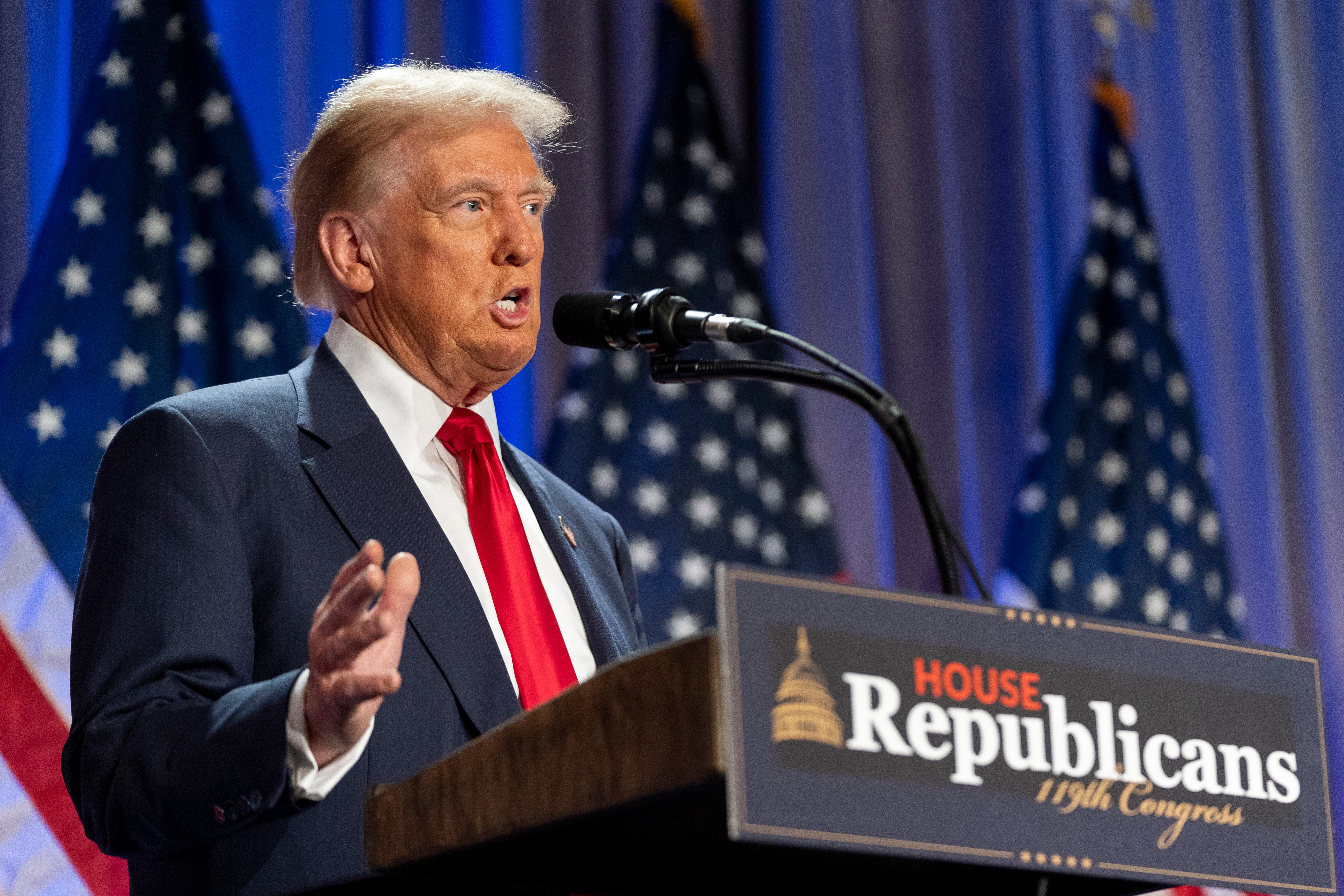Your next iPhone is likely to be even more expensive thanks to Trump
Economists have estimated that an iPhone 16 for $1,000 may cost $300 more under Trump’s policies
Your support helps us to tell the story
From reproductive rights to climate change to Big Tech, The Independent is on the ground when the story is developing. Whether it's investigating the financials of Elon Musk's pro-Trump PAC or producing our latest documentary, 'The A Word', which shines a light on the American women fighting for reproductive rights, we know how important it is to parse out the facts from the messaging.
At such a critical moment in US history, we need reporters on the ground. Your donation allows us to keep sending journalists to speak to both sides of the story.
The Independent is trusted by Americans across the entire political spectrum. And unlike many other quality news outlets, we choose not to lock Americans out of our reporting and analysis with paywalls. We believe quality journalism should be available to everyone, paid for by those who can afford it.
Your support makes all the difference.President-elect Donald Trump has promised to impose tariffs on China which are set to make a wide variety of goods more expensive come the new year. That may include your next iPhone.
Trump said during the campaign that he would impose a 60 percent tariff on all Chinese products, with 10 to 25 percent tariffs being applied to other major trading partners.
If Trump goes ahead with his 60 percent tariff on Chinese goods, iPhone prices are likely to increase significantly. Economists have estimated that an iPhone 16 for $1,000 may cost $300 more under Trump’s policies.
On Monday night, Trump said in a Truth Social post that China may face additional tariffs.
“I have had many talks with China about the massive amounts of drugs, in particular Fentanyl, being sent into the United States – But to no avail,” he wrote.
“Representatives of China told me that they would institute their maximum penalty, that of death, for any drug dealers caught doing this but, unfortunately, they never followed through, and drugs are pouring into our Country, mostly through Mexico, at levels never seen before,” he claimed.
“Until such time as they stop, we will be charging China an additional 10 percent Tariff, above any additional Tariffs, on all of their many products coming into the United States of America.”

While Trump has claimed that his policies won’t hurt consumer prices, most economists disagree. Tariffs are paid to the government by the retailer or manufacturer importing the products, not the country where the goods were purchased from. Trump’s tariffs may help some companies whose products are already made in the U.S., but economists have warned that tariffs would raise costs for U.S. companies who have to buy goods from abroad, such as iPhone compartments.
U.S. companies may take on that extra cost and make a smaller profit, or as is more likely, they could pass those costs on to the American consumer.
WalletHub analyst Chip Lupo told Newsweek: “Shoppers eyeing big-ticket items this Black Friday should consider moving quickly, especially with potential tariffs looming that could potentially raise prices.”
“Electronics, appliances, cars, and furniture are particularly vulnerable to price increases because of their reliance on imported parts and materials,” Lupo added.
The U.S. imported goods worth $4 trillion in just the last year, according to the U.S. Census Bureau.
“Tariffs are taxes. Taxes make prices go up,” the director of Texas A&M University’s Mosbacher Institute for Trade, Economics, and Public Policy, Raymond Robertson, told Newsweek.
“I’m just so stunned that people don’t put two and two together,” he added.
“For budget-conscious consumers, the advice is clear: prioritize purchasing now if you’re in the market for items like stoves, smartphones, or cars,” Lupo told the outlet. “Locking in lower prices before new tariffs take effect is a smart move. Waiting might result in sticker shock once tariffs are implemented and retailers are forced to adjust their pricing to accommodate higher import costs.”
The U.S. census reveals that smartphones are about a tenth of the goods imported in the last year and that more than 80 percent of them are made in China.

Join our commenting forum
Join thought-provoking conversations, follow other Independent readers and see their replies
Comments